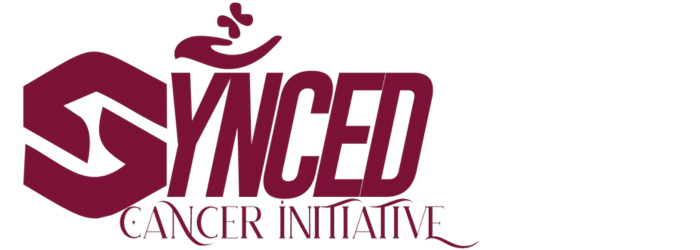If cancers were people, breast cancer and colorectal cancer would be that pair of besties you never expected to be friends—like the quiet bookworm and the life of the party. One minute you think they have nothing in common, and the next, they’re finishing each other’s sentences.
As March is Colorectal Cancer Awareness Month, and while everyone is talking about it, let’s talk about something you probably didn’t know—its unexpected relationship with breast cancer. Yep, these two cancers have more in common than you’d think. Two completely different body parts, yet somehow, they seem to have each other on speed dial. But how exactly are they connected? And what does this mean for you?
Strap in, because we’re about to go on a fun but educational ride through the gut, the boobs, and everything in between.
First Things First: What is Colorectal Cancer?
Colorectal cancer (CRC) is a type of cancer that starts in the colon or rectum, which are part of the digestive system. It often begins as small growths called polyps that, if left unchecked, can turn into full-blown cancer. The symptoms? Blood in your stool (yikes), unexplained weight loss, persistent stomach pain, and changes in bowel habits (either going too much or not going at all—both are sus).
It’s one of the most common cancers worldwide, and while it mostly affects older adults, younger people are increasingly getting diagnosed too. In fact, the American Cancer Society predicts that by 2030, colorectal cancer will be the leading cause of cancer-related deaths in people under 50.
Now, What About Breast Cancer?
Breast cancer, on the other hand, is that cancer that affects the breast cells and has been in the spotlight for decades—pink ribbons, awareness walks, and all. It’s the most common cancer in women worldwide and, like colorectal cancer, has strong genetic and lifestyle risk factors. Symptoms include lumps in the breast, changes in breast shape, nipple discharge, and skin dimpling.
According to the World Health Organization (WHO), over 2.3 million women were diagnosed with breast cancer in 2020 alone.
So, these two cancers affect completely different parts of the body, right? Why are we talking about them together? Well, keep reading.
The Hidden Link Between Colorectal and Breast Cancer
While colorectal cancer and breast cancer seem like distant cousins at best, research suggests they might actually be closely related. Here’s why:
- Genetic Connections
If you thought genetics only decided whether you’d have your father’s bad knees or your mother’s height, think again. Some inherited gene mutations increase the risk of both colorectal and breast cancer.
For example, mutations in the BRCA1 and BRCA2 genes, which are famous for their role in breast and ovarian cancer, have also been linked to an increased risk of colorectal cancer.
Then there’s Lynch Syndrome, a hereditary condition that increases the risk of colorectal cancer. But guess what? It also raises the risk of breast cancer. People with Lynch Syndrome have mutations in genes like MLH1, MSH2, and MSH6, which affect DNA repair and make them more susceptible to multiple types of cancer.
- Hormones Are Doing the Most
Hormones love drama. Estrogen, in particular, has been studied for its role in both breast and colorectal cancer. High levels of estrogen are linked to an increased risk of breast cancer, and some studies suggest it may also influence colorectal cancer risk.
Women who take hormone replacement therapy (HRT) for menopause symptoms have been found to have a slightly higher risk of developing both types of cancer. The connection isn’t fully understood, but researchers believe estrogen may affect how cells grow and repair themselves in both breast and colon tissues.
- Lifestyle Habits: Same Risks, Different Cancers
You know the things doctors always tell you to avoid? Turns out they don’t just increase your risk of one type of cancer—they’re overachievers and can lead to multiple cancers.
- Diet: A diet high in processed foods, red meat, and low in fiber increases the risk of colorectal cancer. But guess what? It also messes with your hormones and raises breast cancer risk.
- Obesity: Fat cells produce estrogen, which, as we’ve already established, plays a big role in both cancers.
- Alcohol: Regular drinking is linked to higher breast cancer risk AND colorectal cancer risk. A double loss.
- Smoking: If you needed another reason to quit, here it is. Smoking is linked to an increased risk of both cancers.
What Can You Do?
Now that we know colorectal cancer and breast cancer are basically working together to stress us out, what can we do?
- Get Screened: Early detection saves lives. If you’re 45 or older (or younger with a family history), start getting colonoscopy screenings for colorectal cancer. If you’re 40 or older, schedule regular mammograms for breast cancer. If you have a strong family history of either cancer, talk to a doctor about genetic testing.
- Fix Your Diet: Eat more fiber, leafy greens, and fruits. Reduce processed meats and sugar. Your gut and your breasts will thank you.
- Exercise: Being active for at least 30 minutes a day lowers your risk of both cancers. And no, walking to the fridge doesn’t count.
- Limit Alcohol and Smoking: It’s 2025, let’s stop negotiating with our lungs and liver. Cut back on alcohol and quit smoking if you can.
- Know Your Family History: If your grandma, aunt, or mom had breast or colorectal cancer, it’s time to have a conversation with your doctor. Knowing your risks helps you take proactive steps.
Conclusion
Colorectal cancer and breast cancer might seem unrelated, but they share genetic risks, lifestyle factors, and even hormonal influences. Awareness is key, and since March is all about colorectal cancer, let’s use the opportunity to educate ourselves on both. If you’ve been slacking on screenings or ignoring your health, this is your sign to take action.











What do you think?
It is nice to know your opinion. Leave a comment.